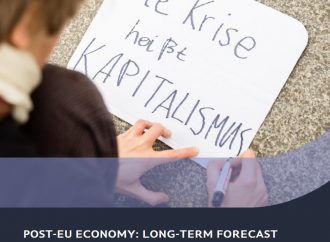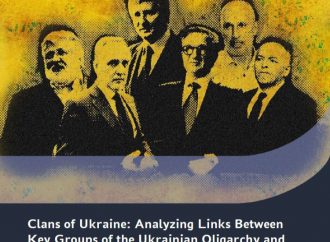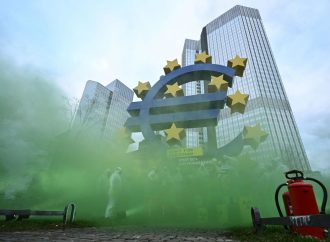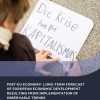The capitalist model is nearing collapse. The European economy is facing a flood of successive crises caused by exogenous factors that have led to a systemic deregulation in the economic and political stability of the bloc.
In the vibrant landscape of Italian politics and business, a notable clash has emerged in the last few weeks between Giorgia Meloni, the leader of the right-wing political party Brothers of Italy (FdI), and John Elkann, scion of the well-known car production family Agnelli (Fiat, Alfa-Romeo, Lancia, Ferrari, Maserati, Iveco). John Elkann decided to move the companies out of Italy and production out of Europe, even though he took advantage of subsidies. The clash between Giorgia Meloni and John Elkann is about deindustrialization and Eurosabotage. It represents a microcosm of the broader tensions and challenges confronting the European Union (EU) in the 21st century.
As political and business leaders grapple with competing visions and priorities, the clash outcome will reverberate far beyond the confines of partisan politics and corporate boardrooms, shaping the destiny of the EU at a critical juncture in its history. In recent years, Germany, France, and Italy, once the industrial powerhouses of Europe, have witnessed notable shifts in their economic landscapes marked by the phenomenon of deindustrialization. This trend, characterized by a decline in the relative contribution of manufacturing to the national GDP and employment, poses significant challenges for these nations.
In this context, it is important to present a comprehensive analysis of the globalist capitalist model’s challenges, particularly within the European Union (EU), and outline potential scenarios for its transformation. Key points include:
- Systemic Challenges: The EU faces crises stemming from geopolitical risks, including tension with China and internal economic and political instability. These factors contribute to the potential collapse of the globalist capitalist model.
- Militarization and Economic Shifts: Militarization, driven by NATO interests, exacerbates intra-elite confrontations and favors US corporations over European counterparts, draining the EU’s budget and compromising social expenditures and public investments.
- Economic and Political Divisions: Rising borrowing costs, declining economic growth, and unresolved crises contribute to Euroscepticism and political divisions within the EU, affecting key member states like Germany, France, and Italy.
- Potential Scenarios for EU Transformation: The text outlines three probable scenarios for the EU’s future: centralization leading to a federation, a “Two-Speed Europe” with different regulatory frameworks, or EU degradation characterized by Eurosabotage tendencies and geopolitical influence.
- German Recession and Global Economic Shifts: Germany’s recession, fueled by deindustrialization and protectionist measures against China, underscores broader global economic shifts and potential repercussions for the EU.
- Proposed Paradigm Shifts: Preparations are underway to dismantle the neo-Keynesian free market model in the US and EU, with a focus on a people-first, conservation economy paradigm. This shift entails redefining the metrics of economic success and control mechanisms.
- Zero-Sum Society Dynamics: The proposed models prioritize social criteria and fair redistribution, leading to a zero-sum society where improvements for one group may come at the expense of another, which emphasizes control mechanisms by non-profit entities and IMF-affiliated NGOs.
The analysis portrays a complex landscape of economic, political, and social challenges within the EU and suggests potential transformative pathways for addressing systemic issues and shifting paradigms.
The report can be found at the following link – http://newstratcon.org/wp-content/uploads/2024/02/Post-EU.pdf
Dr. Andrea Galli
President
New Strategic Concept
https://newstratcon.org













